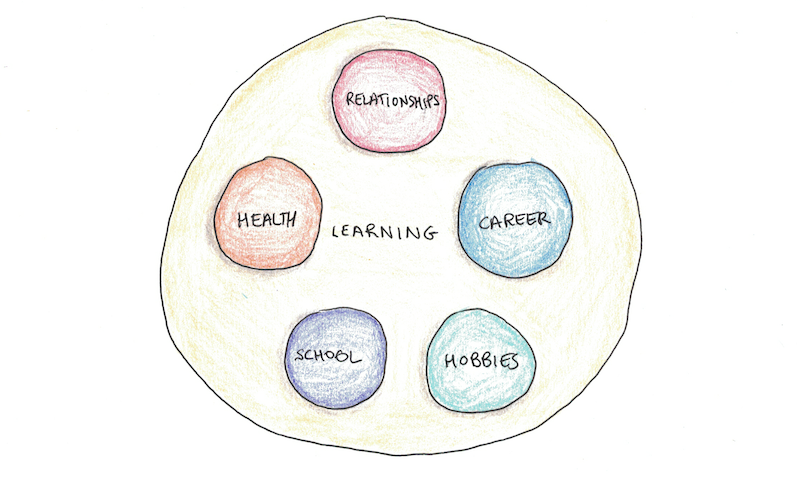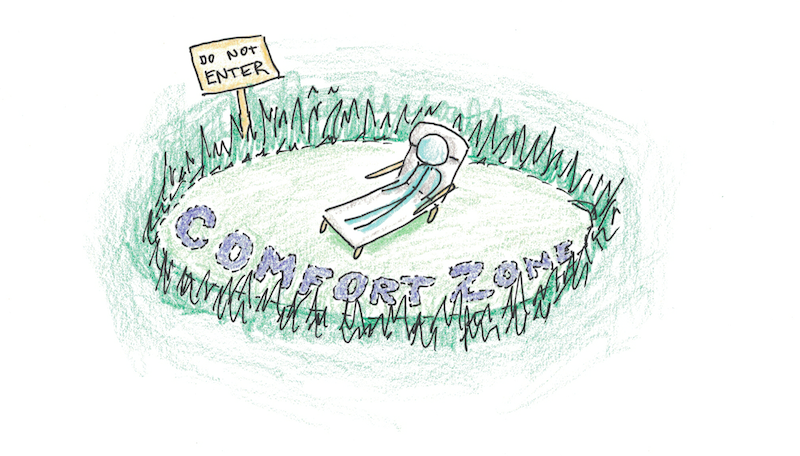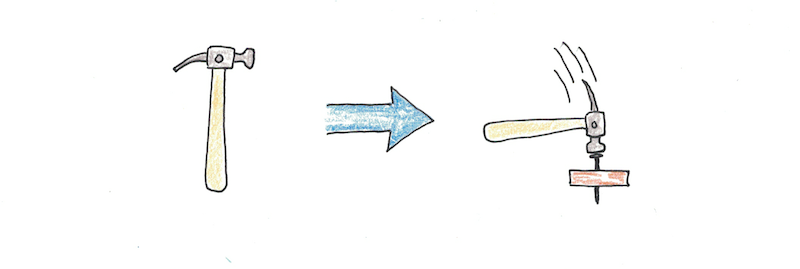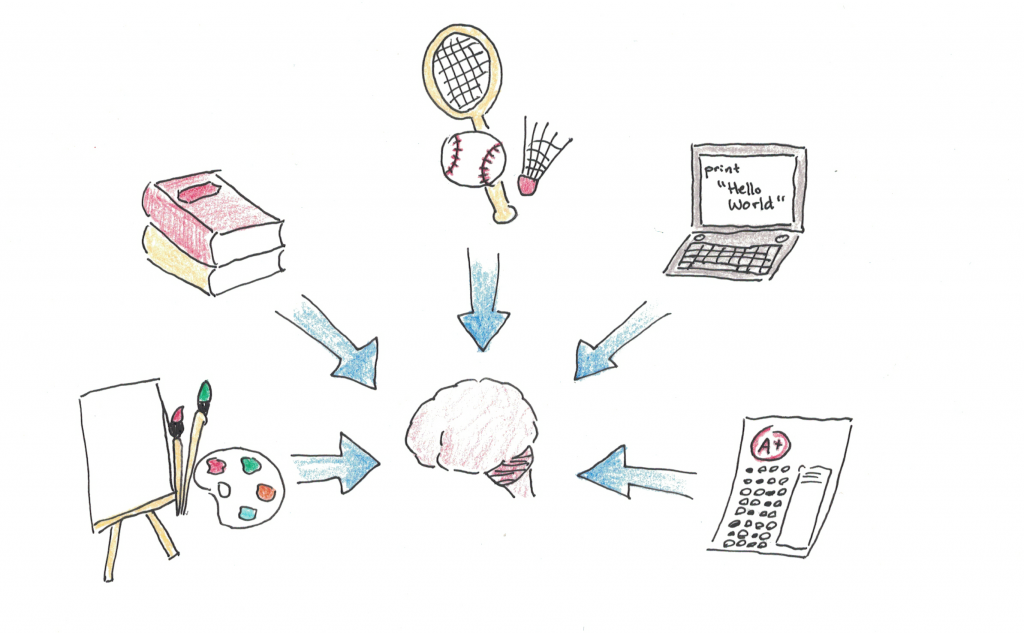We’re taught a lot of things in school. But oddly, few of us are taught how to learn. This is unfortunate because knowing the effective way to teach yourself things is absolutely essential.
Why Self-Education Matters
Every improvement you ever make in your life will come from learning.
To have a successful relationship, you need to learn how people think. You need to master social skills, communication skills and empathy.
To have a successful career, you need to learn your profession. You need to pick up technologies, stay on top of research and keep up with trends.
To have a meaningful life, you need to learn. Our greatest joys in life don’t come from passive achievements. They come from finding a goal or project and figuring out how to make it a reality.

The more things you know how to do well, the more things you enjoy. We love the things we’re good at, so learning how to learn is really learning how to create more things you love in your life. How might life be different if you were an accomplished painter, carpenter, athlete or writer? It all starts with self-education.
Why Self-Education is Hard
The problem is that most people struggle with learning new things. We tend to learn only the things we were already good at. This creates little bubbles of confidence where we learn, and vast areas we avoid because we’re not sure we can get good at them.
There’s nothing wrong with focusing on learning some things and not others. Time is finite, so it makes sense to pick the things you’re already good at.
The problem with this is that relying on our limited experience makes it a lot harder to learn something you want to face, but don’t feel so confident about. Our personal experiences help, but they can also wedge us into corners where we only feel comfortable tackling certain types of projects, because otherwise the skills feel outside our comfort zone.
You see this with people who claim they’re “bad at math”, don’t have the “language gene”, or are clumsy, uncreative or introverted.
The real truth is probably closer to, “I don’t know how to learn this.”

How to Learn the Things You Find Challenging
I’d like to change this. By compiling research from cognitive science; my own experience aggressively learning things as varied as computer science, languages, art and more; combined with the experience of working with thousands of different students over the years, I’d like to give you a roadmap to learn anything.
The process starts by understanding basic principles of learning. Once you see how learning works, it’s a lot easier to see where you may have made mistakes in the past. Next, move from general principles to specific tactics. These are proven strategies that make use of the principles and allow you to learn more efficiently by giving you more tools for overcoming stumbling blocks.
In Rapid Learner, I cover all of these principles and tactics in detail, but for now, I’d like to just leave you with three:
1. Begin with the use in mind.

The first step to learning well is always to ask yourself “why am I learning this?” In particular, ask yourself in what types of situations are you likely to use the information.
The reason why this matters is that the most effective way to learn is highly dependent on the eventual situation, be it a test, essay, conversation or real-life project.
If you can identify the use, the most valuable thing you can do is to try to align what you’re doing when learning to match what you’re doing when you want to use it. If that’s learning a language to have conversations; have conversations. If that’s programming to build apps; build apps. If that’s learning to pass a big test; practice the test questions.
2. Always understand before memorizing.

Faced with an onslaught of information, many of us resort to memorizing. Every day I meet students who are trying to cram facts, figures, definitions and concepts into their brain in order to pass hard tests.
Learning, however, is much faster when you work with precision over brute force. You’ll remember much more if, instead of trying to memorize, you first seek to understand. Once you “get” something, the act of memorizing it becomes much, much faster.
3. Everything can be learned.

There’s a common emotional reaction to facing a learning challenge that’s above your level. You feel that you can’t possibly learn it. Physics is too complicated and mysterious. Japanese has too many words, characters and confusing grammar to master. You try out some dance steps and trip over your feet.
The right belief to have is that everything can be learned. No matter how complicated it seems, everything breaks down into components which are simple enough even a child could learn them. Learning well involves spotting how those systems break down, so you can always start with pieces that are small enough to handle.
Join Rapid Learner
I’m going to be opening a new session of my six-week course for learning things more effectively, Rapid Learner, very soon. Sign-up here to find out about our next session.
In that course, I’ll walk you through the exact system I use for learning hard subjects, whether that’s passing exams, learning a new language, mastering a professional skill or just learning for fun. I hope to see you there!


 I'm a Wall Street Journal bestselling author, podcast host, computer programmer and an avid reader. Since 2006, I've published weekly essays on this website to help people like you learn and think better. My work has been featured in The New York Times, BBC, TEDx, Pocket, Business Insider and more. I don't promise I have all the answers, just a place to start.
I'm a Wall Street Journal bestselling author, podcast host, computer programmer and an avid reader. Since 2006, I've published weekly essays on this website to help people like you learn and think better. My work has been featured in The New York Times, BBC, TEDx, Pocket, Business Insider and more. I don't promise I have all the answers, just a place to start.